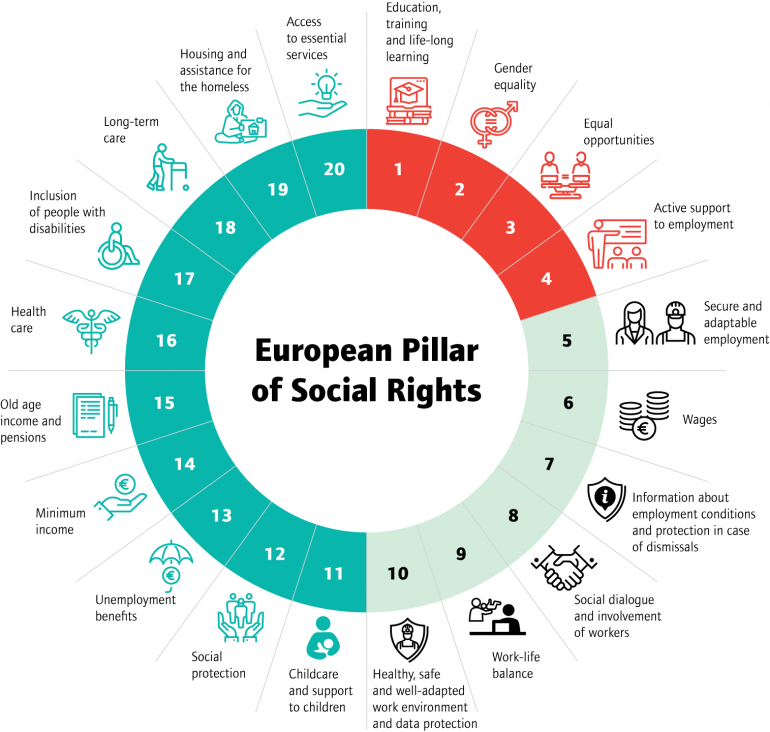Delivering on the European Pillar of Social Rights – Five years on

In 2017, the European Parliament, the Council and the Commission proclaimed the European Pillar of Social Rights. The Pillar sets out 20 key principles and rights essential for fair and well-functioning labour markets and social protection systems, structured around three chapters: equal opportunities and access to the labour market, fair working conditions, and social protection and inclusion.
After a strong socio-economic recovery from the COVID-19 pandemic, the Pillar’s principles remain highly relevant in the current context, where many households are struggling to make ends meet, faced with increased prices exacerbated by Russia’s invasion of Ukraine.
Five years on, the Commission has put forward more than 130 initiatives to implement the Pillar and deliver a social Europe that is fair, inclusive and full of opportunities.
These initiatives range from pay transparency and equality between women and men, minimum wages and investment in skills, to combatting child poverty, minimum income, and protecting workers’ safety and health.
The European Pillar of Social Rights is also supported by EU funds to implement projects that promote social inclusion, fight poverty and invest in people, namely through the European Social Fund Plus (ESF+), Cohesion Policy, the Recovery and Resilience Facility and InvestEU.
